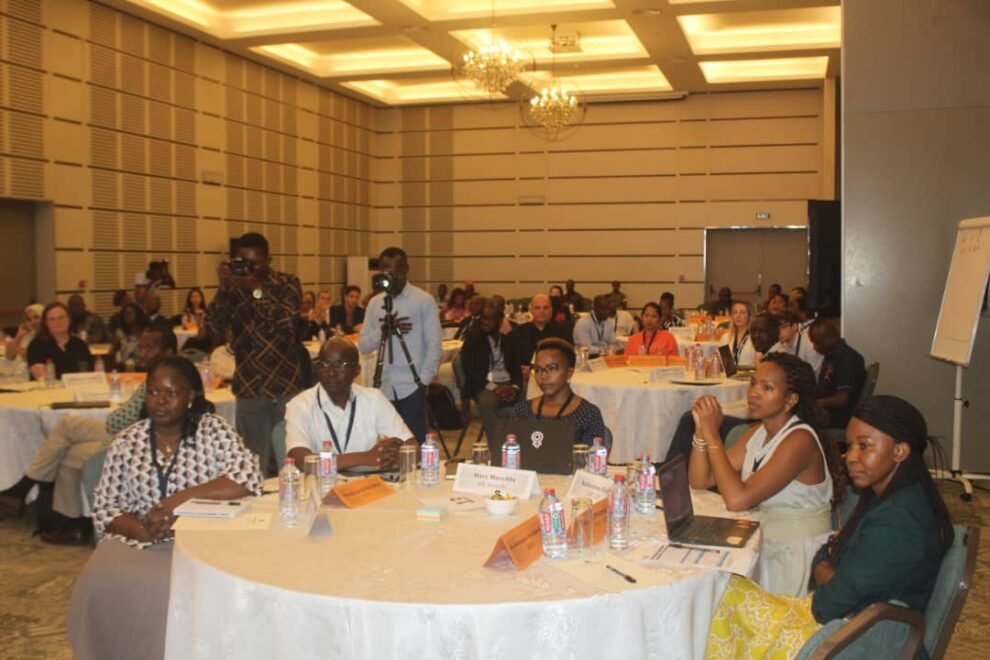Virginia Siebenrok, the Chief Food Safety Quality, World Food Programme (WFP), has urged Ghana to adapt a standard local food safety quality at all locations to ensure a more harmonized food safety system.
She said this was important as food safety was constantly changing, adding that “the risk and emerging risks are different depending on where we find ourselves.”
Mrs Siebenrok made the call at the opening of a five-day WFP Africa retreat on Food Safety and Quality (FSQ) in Accra.
The retreat provides an opportunity to build bridges around food safety and quality, identify opportunities for joint efforts, and establish strategic collaboration and technical approaches, considering the challenges of the specific context of Africa.
It also seeks to create and strengthen networks for continued collaboration and knowledge-sharing to support continental and national efforts on improving food systems from a food safety and quality perspective.
Mrs Siebenrok said food safety was considered one of the corporate risks in WFP and had become very important to include it in risk assessments as part of the risk registers in different WFP operations.
She commended Ghana for its impressive food safety practice, which had served as a benchmark for other locations, including some interesting and innovative ways of doing things.
“That is why we are here looking at what especially Ghana is doing, how to take this example to others and how to also bring the global WFP into Africa and how to implement it properly,”the Chief Food Safety Quality WFP stated.
Statistics from the World Health Organization (WHO) indicate that more than 91 million people fall ill each year from foodborne diseases in Africa resulting in 142,000 deaths which contributes to one-third of the global death toll.
Out of the total deaths recorded, 32,000 were mostly children under five years and 70 per cent were diarrheal diseases caused by non-typhoidal Salmonella in Children.
Ms Barbara Tulu Clemens, the Country Director WFP-Ghana, said food safety and quality remained utmost concern to the WFP as the food was purchased locally, regionally, nationally, and internationally.
To this end, the WFP is collaborating with local manufacturers to produce safe and healthy foods for beneficiaries of its programmes, she added.
The initiative, which includes the production, processing, and distribution of foods, formed part of the WFP’s local sourcing policy.
The local sourcing policy seeks to ensure that food products procured for vulnerable beneficiaries in countries in Africa hit by conflict, climate change and socio-economic effects of the COVID-19 pandemic were safe and met quality standards.
Ms Clemens said processors of foods such as grains, cereals, fortified oils, cereal blends, and peanut butter would receive support under the initiative.
She said the WFP was also supporting two industrial food processors in the country to set up new food processing facilities while developing global-level food safety and quality management systems.
She assured that her outfit would ensure that more than half of the essential nutritious food products required for their programmes were procured in Africa.
Mr Roderick Kwabena Daddey-Adjei, the Deputy Chief Executive Officer of the Food and Drugs Authority (FDA), speaking at the event, said food and nutrition were key to decent life and a vibrant community and essential to meeting the Sustainable Development Goals.
He said the World Food Programme (WFP) had been central in helping Africa achieve food security in the face of economic hardships which had resulted from conflicts, natural disasters, and climate change, adding that Ghana had been a beneficiary of such support, including the School Feeding Programme and the areas of private sector integration.
Mr Roderick said as part of efforts to ensure food safety, the authority had developed a food safety policy and a progressive license scheme that was supporting local industries to produce food products in hygienic conditions.
This, he said, would make it easier for the local companies to attract the WFP local sourcing support.
He urged local companies to take advantage of the schemes to receive technical support to meet the required standards and prevailing food safety requirements.
Participants selected across Africa include food safety and quality experts.
Source : GBN











